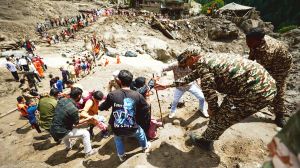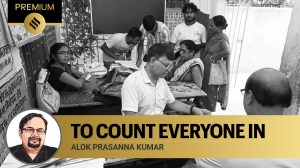Stay updated with the latest - Click here to follow us on Instagram
In tackling dengue crisis, govt’s flagship mohalla clinics falter before take-off
The only mohalla clinic in the city, which was inaugurated by Chief Minister Arvind Kejriwal in July with much fanfare, has been receiving a stream of patients with fever and symptoms of dengue.
Janakram, a 60-year-old resident of the Peeragarhi relief camp in Delhi Health Minister Satyender Jain’s constituency, received a strip of paracetamol, some advice and a reference to a government dispensary when he visited the much-hyped mohalla clinic with complaints of dengue fever.
The only mohalla clinic in the city, which was inaugurated by Chief Minister Arvind Kejriwal in July with much fanfare, has been receiving a stream of patients with fever and symptoms of dengue.
[related-post]
However, the clinic is referring all its fever patients to nearby dispensaries for tests. And the dispensaries further refer them to government hospitals to carry out the reliable Eliza tests to diagnose cases of dengue.
The clinic at Peeragarhi, a peripheral health care unit aimed at providing better medical facilities to the economically weaker sections of society, is a prototype. As many as 500 more such clinics will be set up by the end of this year, Jain had said.
According to the chief minister, these clinics will be able to treat 95 per cent of the patients who approach it, reducing the rush at hospitals such as AIIMS, Safdarjung and Guru Teg Bahadur, among others.
Like the scores of patients trooping into the two-roomed porta cabin, Janakram went up to the doctor and narrated his ordeal. “I have been suffering from fever for the last few days. I have severe back ache,” he told the doctor.
Suspecting that this was a case of dengue, the doctor asked Janakram and his wife Neelam to visit the Delhi government’s dispensary, located three kilometres away. She also told him not to panic, drink lots of fluids and take care. “You bring me the reports and I will give you all the medicines. But we do not conduct tests here. Do not go to the local quacks,” the doctor said while writing a prescription for him.
During the inauguration of the clinic, Jain had said, “Instead of making residents of a colony travel to the hospital, we wanted health facilities to come to their doorstep. When problems were identified with that concept, we came up with the idea of mohalla clinics.”
A lab assistant at the clinic disclosed that they had been conducting rapid tests on patients till a fortnight ago. “After the government said the tests are not accurate, we stopped conducting them. We cannot conduct the more accurate tests here because we do not have the labs and equipment to do so,” he said.
On an average, as many as 170 patients visit the mohalla clinic every day, said doctors and staff at the clinic.
The Peeragarhi relief camp is a cluster of hundreds of brick tenements with tin roofs, with dirt roads intersected by open drains. The drains, one of which runs along Janakram’s two-roomed house, are clogged with clumps of garbage and putrid water. Mosquitoes and flies abound.
“These drains are cleaned occasionally, but garbage is dumped in them everyday. There is no way out of this,” said Janakram, a labourer with a transport company.
Janakram then collected his wallet and reports and headed for the Paschim Vihar dispensary, three kilometers away.
Chief Medical Officer Dr Pragya said, “We do not conduct tests for dengue detection. We only conduct tests for platelet count and refer the patient to a bigger hospital, if needed. We counsel and advise them also.”







